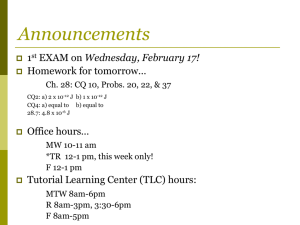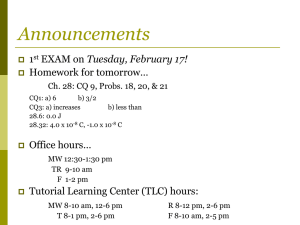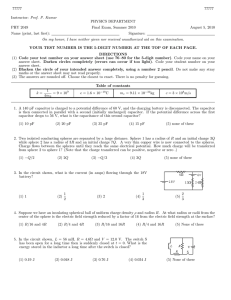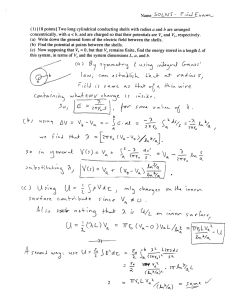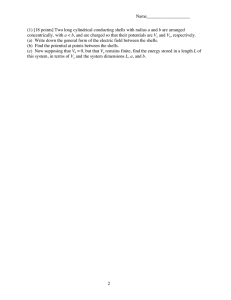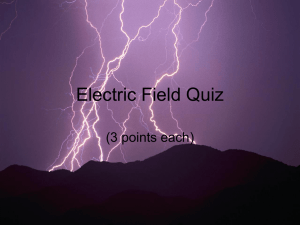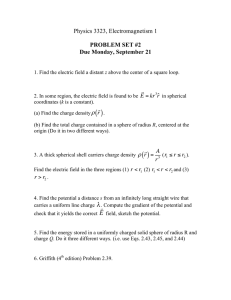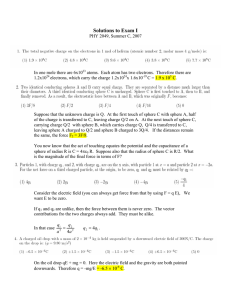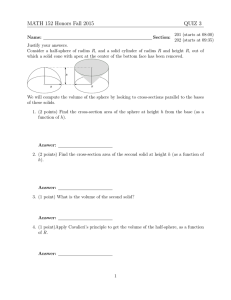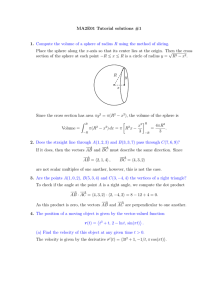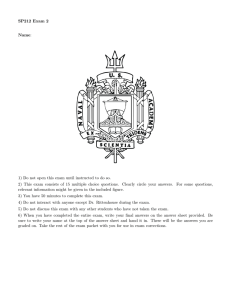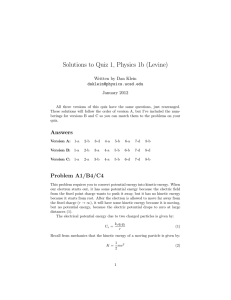PHYS-222 Worksheet 5 for Section 25 & 36 Problem 5-1
advertisement
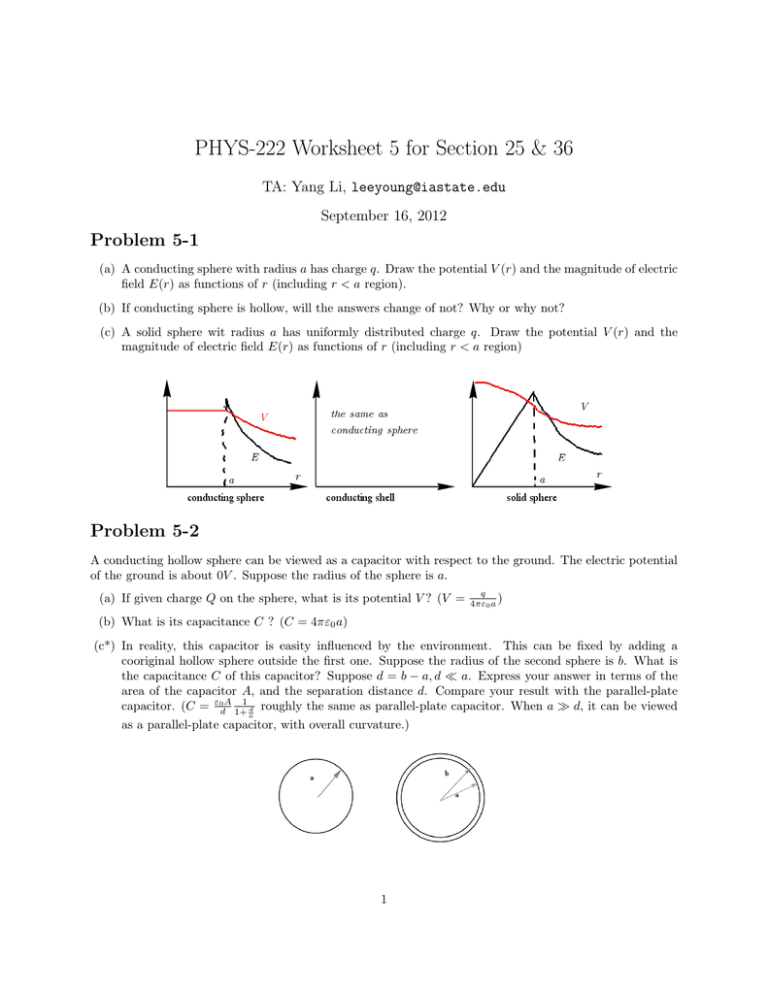
PHYS-222 Worksheet 5 for Section 25 & 36 TA: Yang Li, leeyoung@iastate.edu September 16, 2012 Problem 5-1 (a) A conducting sphere with radius a has charge q. Draw the potential V (r) and the magnitude of electric field E(r) as functions of r (including r < a region). (b) If conducting sphere is hollow, will the answers change of not? Why or why not? (c) A solid sphere wit radius a has uniformly distributed charge q. Draw the potential V (r) and the magnitude of electric field E(r) as functions of r (including r < a region) Problem 5-2 A conducting hollow sphere can be viewed as a capacitor with respect to the ground. The electric potential of the ground is about 0V . Suppose the radius of the sphere is a. (a) If given charge Q on the sphere, what is its potential V ? (V = q 4πε0 a ) (b) What is its capacitance C ? (C = 4πε0 a) (c*) In reality, this capacitor is easity influenced by the environment. This can be fixed by adding a cooriginal hollow sphere outside the first one. Suppose the radius of the second sphere is b. What is the capacitance C of this capacitor? Suppose d = b − a, d a. Express your answer in terms of the area of the capacitor A, and the separation distance d. Compare your result with the parallel-plate capacitor. (C = ε0dA 1+1 d roughly the same as parallel-plate capacitor. When a d, it can be viewed a as a parallel-plate capacitor, with overall curvature.) 1
